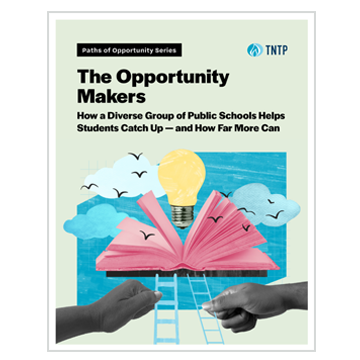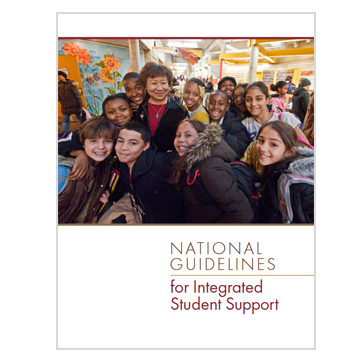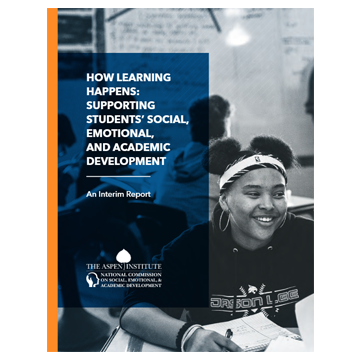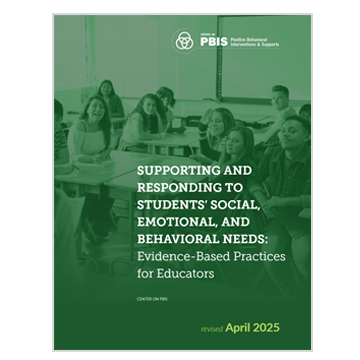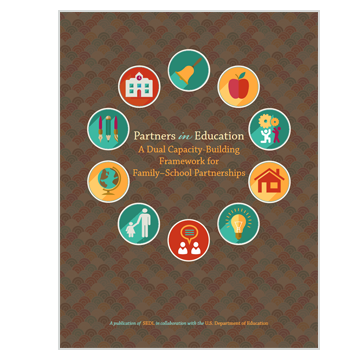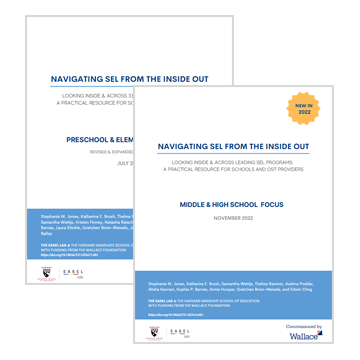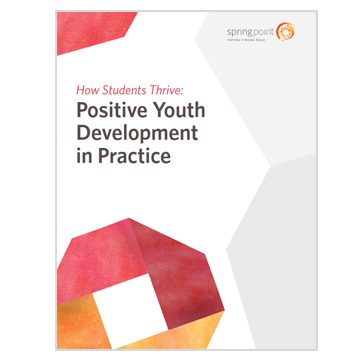Resource Profiles
New Resource Search
← Return to Find Resources | MTSS
Resource Results
Unlocking Algebra: What the Data Tells Us About Helping Students Catch Up
This report explores the question: “How can we help more students master Algebra I, especially those who start the course with significant unfinished learning?” It is based on a TNTP analysis of three years of data from more than 2000 math students and explores practice strategies for integrating Tier 2 supports into daily instruction.
The Opportunity Makers Toolkit
This suite of school improvement tools is based on TNTP’s Opportunity Makers report which profiled seven public schools that have changed the trajectory academic outcomes for students. The collection includes a baseline self-assessment tool and action guides focused on three trajectory-changing practices: Belonging, Consistency, and Coherence.
National Guidelines for Integrated Student Support
This report distills the collective expertise of leading researchers and practitioners from the nation's most rigorously evaluated student support models. By analyzing successful interventions, the working group identified the core practices essential for high-quality implementation. This resource serves as a framework to help schools and communities build effective, comprehensive systems that address the holistic needs of every student.
How Learning Happens: Supporting Students’ Social, Emotional, and Academic Development
This landmark consensus report issued by the National Commission’s Council of Distinguished Scientists unites scholars from multiple fields to affirm the interconnectedness of the social, emotional, and academic components of learning.
Supporting and Responding to Students’ Social, Emotional, and Behavioral Needs: Evidence-Based Classroom Strategies for Educators
Concise guide - updated in 2025 - that provides positive behavior support practices, a self-assessment tool and classroom decision-making chart, and classroom-based practice examples organized by topic, e.g., setting expectations, developing routines, using behavior-specific praise, responding to problem behavior, collecting and using behavior data, etc.
The Dual Capacity-Building Framework for Family-School Partnerships
Based in existing research and best-practices, this guide provides a compass for the development of family engagement strategies, policies, and programs using a "dual capacity" approach that recognizes the roles and needs of both partners - parents and staff. For those doing family engagement work, this is one of the main go-to frameworks for thinking about this work.
Navigating SEL from the Inside Out - SEL Program Guides
There are many social emotional learning programs out there! These two guides provide detailed information for more than 40 SEL programs for PK-12 school and out-of-school time settings.
How Students Thrive: Positive Youth Development in Practice
School culture and climate is a critical component to any school. This paper can help a school or district explore how to design schools around young people in order to support them on their positive youth development, including the importance of caring, trusting, and supportive relationships, high expectations, voice, choice and contribution, intentionally engaging learning experiences and consistency.
← Return to Find Resources | MTSS

